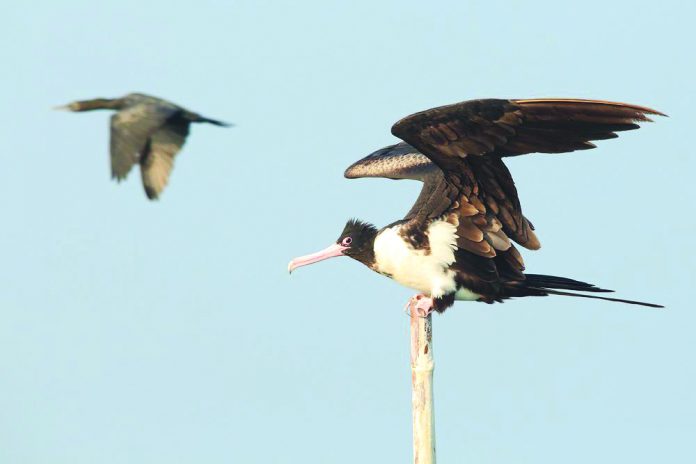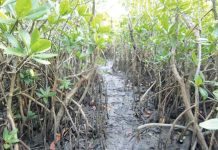
MANILA – The sighting of Christmas frigatebirds at the Apo Reef Natural Park (ARNP) in Occidental Mindoro means a “healthy ecosystem” is thriving in the world-renowned marine sanctuary, according to Environment secretary Roy Cimatu.
The Christmas frigatebird (Fregata andrewsi) is considered the ninth most evolutionary distinct and globally endangered bird in the world.
In June 25, the bird was seen at the ARNP – its third sighting outside the Sulu Sea where it is frequently sighted.
The sighting was documented by the ARNP protected area office and the Mindoro Biodiversity Conservation Foundation, Inc. (MBCI).
A “juvenile” seabird with “black upper parts, a pale cream head, has dark breast bands, and distinctly shaped white patch in its belly and under its wings” visited the ARNP, the MBCI stated in its report.
Christmas frigatebird sighting was first recorded in the country – specifically in Tawi-Tawi province – in 1995.
Since then, more than 150 sightings of the species in Sulu Sea were recorded.
Christmas frigatebirds are known to breed only in Christmas Island in Australia, located south of Java, Indonesia.
“The sighting of the endangered seabird is an indicator of a healthy environment and healthy ecosystems in ARNP,” said Cimatu. “That only means that conservation efforts there are bearing fruit and the people in charge of protecting the area are doing a good job.”
The ARNP is home to corals, numerous species of fishes and the marine mammal dugong.
Located off the town of Sablayan in Occidental Mindoro, the ARNP is the largest reef in the country and the second largest contiguous coral reef on the planet.
It is nestled within the Coral Triangle, which is the epicenter of the world’s marine biodiversity and a global priority for conservation. (With a report from DENR/PN)







